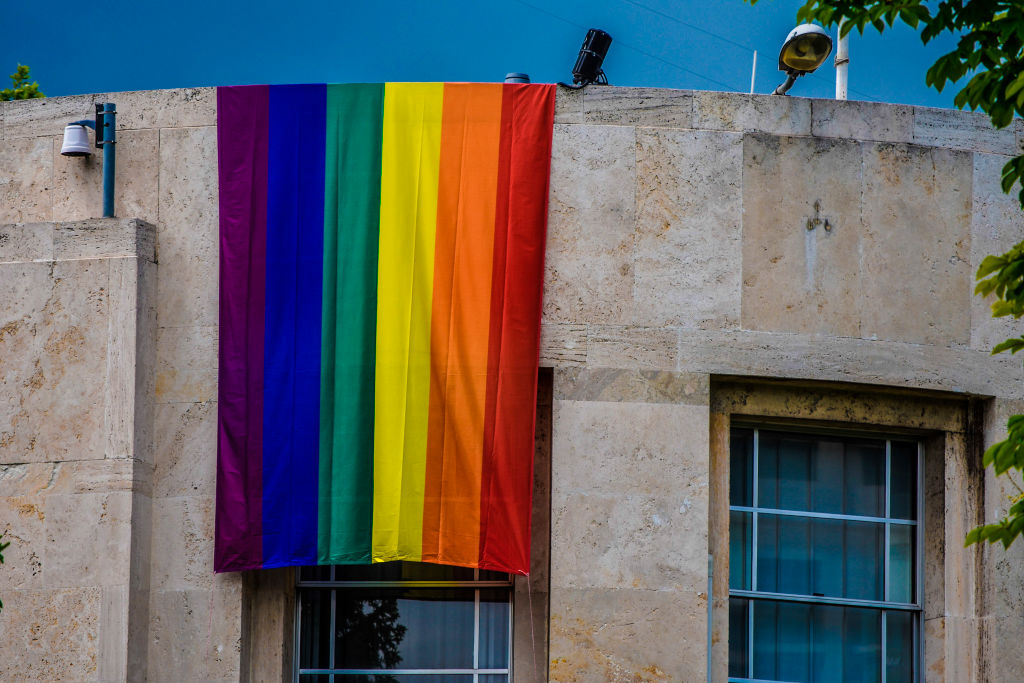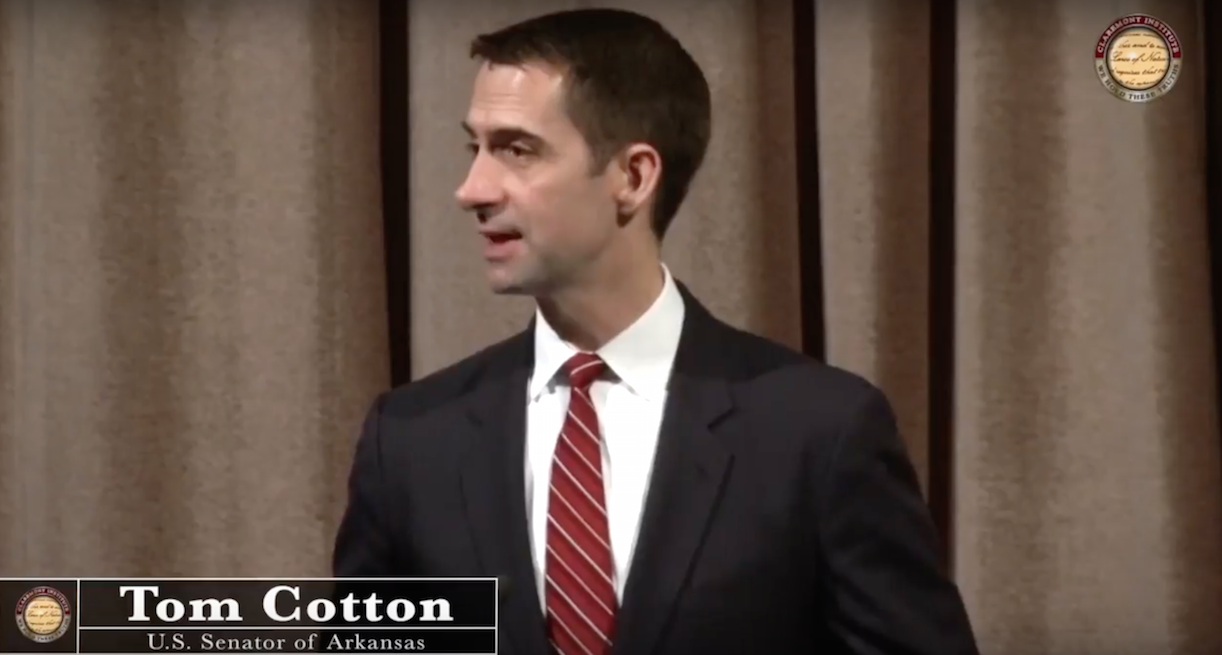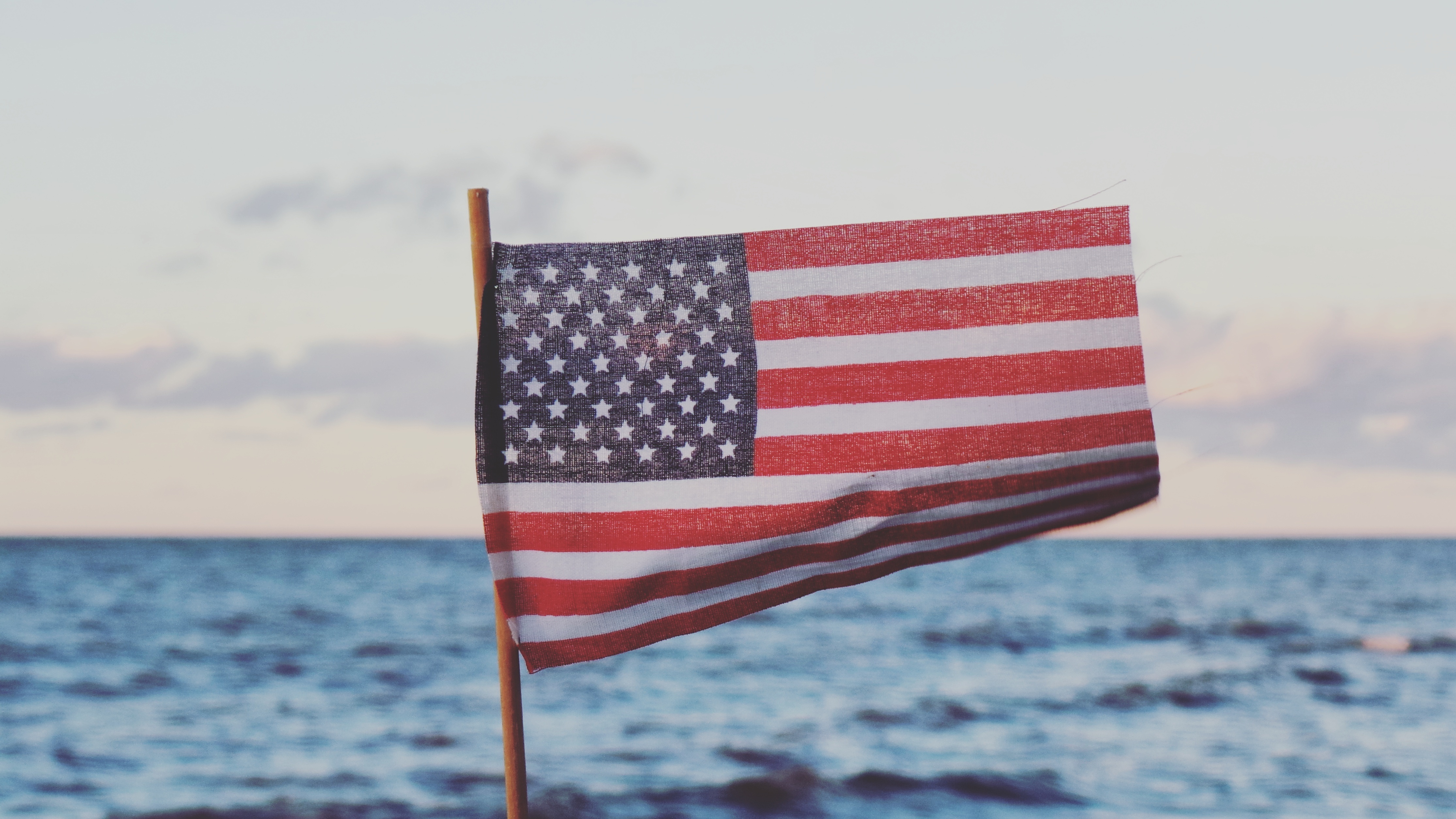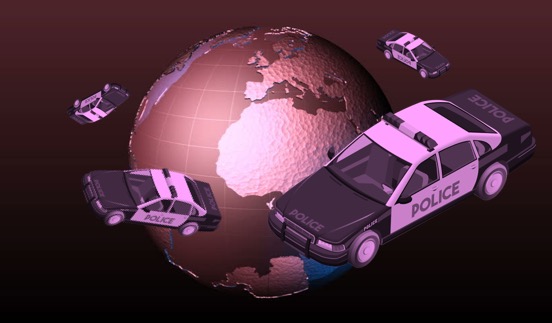Can America recover a nationalist vision of world leadership?
America’s Salvific Global Mission

USAID has embraced gender and sexuality equality as America's key cultural export.
American taxpayers are bankrolling an agenda that breeds anti-American sentiment overseas while complicating and undermining U.S. foreign policy. LGBTQI+ programming conducted by the United States Agency for International Development (USAID) is not welcome in many societies of the non-Western world. USAID’s attempt to foist progressive, Western beliefs about sexuality and sexual practices on the Middle East, Africa, and parts of Asia is a blatant act of cultural imperialism that threatens U.S. interests.
Why is an American agency dedicated to encouraging socioeconomic development in poor countries funding a program that is unwelcome with their leadership and people? Why is an agenda that embodies cultural imperialism being celebrated? Why is America’s primary foreign-assistance organization undermining U.S. interests?
Ignoring obvious consequences is reckless and produces unnecessary challenges for the country. LGBTQI+ programming generates friction with leadership and populations of allies, partners, and potential partners. The programming compounds U.S. foreign policy responsibilities by further diffusing American attention, energy, and resources. And it creates dynamics that debilitate America’s ability to compete effectively with China in the non-western world.
USAID is a product of the Cold War. President John F. Kennedy established the agency after passage of the Foreign Assistance Act of 1961. USAID became an instrument to combat and counter communism at the grassroots in the developing world. The agency focused on meeting the “basic human needs” of people—food, clean water, electricity, and healthcare, mostly meaning vaccination programs.
Despite the end of the Cold War and the attenuated threat of communism, USAID has remained an instrument of U.S. foreign policy. Every decade or two, the agency’s raison d’être is (re)defined. In the Clinton/Bush era, “development” meant the promotion of American democracy and free-market economics. The Biden presidency defines development as the social doctrine of Diversity, Equity, and Inclusion (DEI).
USAID’s LGBTQI+ programming is a prominent feature of Biden’s overseas emphasis on DEI. Through USAID, the administration exports its vision of American LGBTQI+ rights and lifestyles to the world. The programming manifests through education; activism and leadership; and tactics of “allyship.” The objective is to transform or reengineer societies through a dissemination of ideas, routinization of practices, and the integration of lifestyles and beliefs into everyday life.
USAID’s 30-page publication “Integrating LGBTQI+ Considerations into Education Programming” guides educators in realizing diverse and inclusive learning environments. USAID promotes the usage of gender-neutral language and recognizing gender identity or sexual orientation in the classroom. A practice that remains unpopular in the United States—withholding a student’s gender identity or sexual orientation from parents—is advocated by USAID and is being introduced into the traditional and religious societies of the Middle East, Africa, and parts of Asia.
The cultivation of LGBTQI+ activists and leaders is assisted by USAID’s Rainbow Fund. Announced in March 2023, the fund seeks to help make LGBTQI+ individuals more visible and vocal throughout the non-Western world. Biden administration officials are not just satisfied with the decriminalization of homosexuality and gender dysphoria. They view the issue of LGBTQI+ through the lens of human rights, and seek the creation of more LGBTQI+ activists and leaders in foreign countries to realize that human rights vision. USAID ultimately wants to observe equity in non-Western states and societies through the institutionalization of same-sex marriage, the ability of same-sex couples to have children via adoption or surrogacy, and the use of gender-neutral pronouns. In other words, they hope to witness their vision of American society replicated throughout the non-Western world.
Allyship and partnership tactics consume much of USAID’s time and thought, as revealed by USAID Administrator Samantha Power during an interview and Q&A session at the Atlantic Council on June 28. Power believes that there is no international neutrality regarding issues of exclusion. For Power, the only question is how to reengineer other states and societies’ cultures without generating nationalism or spurring foreign lawmakers to impede USAID’s agenda.
Only a cultural imperialist imagines that it is possible to engineer basic society change of fundamental precepts and practices without engendering opposition. Does Power believe everyone in the non-Western world will sit on their hands while USAID “quietly reforms” their centuries’ old cultures and languages to meet the desires of Washington bureaucrats?
President Biden’s belief that diverse, equitable, and inclusive states and societies are fundamental to a stable and prosperous international order is unfounded. Furthermore, the administration’s claim that diverse, equitable, and inclusive states are more cohesive is baseless.
The claims of the Biden administration are impossible to defend. When recently asked about why the U.S. should pursue overseas DEI (i.e., LGBTQI+ programming), USAID Administrator Samantha Power openly admitted to relying on a counterfactual.
Imagine the counterfactual. Imagine a world in which U.S. taxpayer resources are expended in a manner that perpetuates or deepens exclusion of the individuals who are really vulnerable. I mean, that would be bad.
Power’s response demonstrates the lack of empirical evidence underpinning USAID’s LGBTQI+ policy and programming. The imaginations and feelings of Biden administration officials are justifying policy and driving the expenditure of U.S. tax dollars.
Despite the inability to demonstrate the necessity of LGBTQI+ programming to U.S. foreign policy, USAID’s $25 billion budget devotes considerable resources to Biden’s DEI agenda. USAID’s LGBTQI+ programming complements the work of diplomats at the State Department. The policy and programming around cultural reconfiguration resembles a pincer movement—pressuring top officials while cultivating a transformation of the population that generates pressure from below. So, while the Secretary of State repeatedly reminds his diplomatic counterparts of their LGBTQI+ failings, USAID targets and engages individuals, communities, and institutions. USAID’s work is intended to elicit the capitulation of authorities to growing domestic pressure and subsequent transformation of the state and society’s morals, norms, language, and social structure.
The redefinition of development has produced an agency captured by delusion that indulges in denial.
USAID operates under the delusion that its blinkered progressive-belief structure is universal in nature. For USAID, the absence of their behavioral and belief system throughout much of the world is not evidence of contrasting values. USAID believes that it is only proof that structures of power and systems of oppression prevent those values from being freely and openly practiced.
To maintain the delusion and rationalize the necessity of its work, USAID indulges in denial of history and agency. Denial is critical for two reasons. It empowers a narrative that gender and sexuality equality are universal standards throughout time and throughout the world. It also frames USAID’s endeavors as peaceable and liberating, not imperialistic.
USAID argues that the structures of power and oppressive systems responsible for subjugating the “true beliefs and values” of the developing world are vestiges of a colonial past. In the words of USAID, “In pre-colonial times it appears that there were local understandings that gender and sexual diversity was part of the reality of humanity.”
Thus, blame for the developing world’s current system of behaviors and beliefs rests with the colonial machinations of Great Britain, France, and other European powers. USAID implicates the colonizers by virtue of their Christian beliefs for importing and imposing homophobia and a gender binary on the developing world.
The denial of agency and history by USAID devalues the very societies the agency claims to be empowering. USAID operates as if it ultimately understands and knows what is best for the developing world—disregarding societal desires, legislative processes, cultures, and histories. USAID mirrors its imperialist British and French predecessors who projected their own image upon societies and felt entitled to guide those societies to realize that image.
If pre-colonial standards of gender and sexual diversity resonated so strongly within these populations, the norms would have been resurrected in the years following the departure of the colonial power. Colonialism is now an artifact. Do these societies not have agency to govern, decide their values, and construct their social structures, many decades after their colonial masters left?
The United States spent 20 years and billions of dollars attempting to transform the governing and social practices of Afghanistan. The American reengineering efforts proved superficial, at best. In a matter of days, weeks, and months after the U.S. withdrawal, Afghans erased most, if not all, of the American work.
Are we to believe that Afghans are capable of deciding the nature of their society, but other societies from the Middle East, Africa, and Asia remain impotent 50 years or more after the departure of a colonial power?
Furthermore, if European colonialism was so pivotal in determining the current norms witnessed in the non-Western world, how does USAID account for the realities of Japan, Thailand, Ethiopia, Saudi Arabia, and Turkey? None of these countries experienced European colonialism, yet they all offer minimal if any protections for LGBTQI+ people. If European colonialism does not have explanatory value with these cases, do Samantha Power and other officials at USAID believe there is something inherently flawed, backward, or uncivilized about these cultures and societies? Does Japan require USAID officials to educate them?
The cultural imperialism of USAID produces international friction. At the domestic level, attempts to foist foreign beliefs and behaviors on countries fracture their societies. Some societal elements align and embrace the imperialism to advance their own interests vis-à-vis opponents. Others reject the imperialism through the maintenance of the status quo. Yet other elements push back on endeavors to reengineer their culture. For example, the parliament of Ghana is discussing a piece of legislation entitled “Promotion of Proper Human Sexual Rights and Ghanaian Family Values.”
Often these fractures occur in already deeply divided societies. Lebanon is witnessing a deepening divide over LGBTQI+ rights. The issue aggravates Lebanon’s religious, ethnic, and rural/urban divisions.
The push to impose the LGBTQI+ agenda creates friction between the United States and local leadership. Ugandan officials, for example, believe their culture and society are under pressure from external forces. Ugandan President Yoweri Museveni has stated, “Western countries should stop wasting the time of humanity by trying to impose their practices on other people.” Uganda has recently passed legislation that punishes certain LGBTQI+ behavior. As a result, the U.S. placed visa restrictions on Ugandan officials and is considering other sanctions.
The dissonance produced by USAID and its LGBTQI+ programming is not temporary or passing. We are witnessing the beginning of a constant state of friction within non-Western societies and between the non-Western world and the United States over this issue. USAID will not be content with the decriminalization of the LGBTQI+ lifestyle. There will always be another related issue that does not conform to its standards and vision. USAID’s understanding of rights includes same-sex marriage, adoption or surrogacy by same-sex couples, gender neutral pronouns and other matters.
USAID is weakening U.S. foreign policy through a multiplication of responsibilities. The more U.S. foreign policy is asked to do, the less effective it can be.
Like their British, French, and Russian colonial predecessors, USAID is creating clients. The Rainbow Fund’s education programming makes USAID a patron to activists, leaders, teachers, and students. As their patron and wanting to be considered a “true ally,” USAID will be called upon by these clients to intervene on their behalf in the domestic politics of these states. Intervention inevitably generates more anti-Americanism—further evidence that America is telling the developing world how to govern, structure their societies, and police the speech of their citizens.
Considering ongoing legislative and societal discussions about affirming cultural identity in the face of Western expectations, the United States could be intervening in the politics of a half dozen or more countries and sanctioning scores of officials. Therefore, in addition to addressing the situation in Ukraine, competing with China, resolving the Iran nuclear issue, preventing more violence between Israel and Hamas, monitoring terrorist organizations, dealing with the threats of a nuclear-armed North Korea, and limiting climate change, the United States will now also be immersed in the domestic politics of Sub-Saharan Africa and elsewhere over issues that remains deeply unpopular among the populations and their leaders.
USAID is undermining U.S. interests by making the U.S. less appealing and competitive with China and aggravating relations with allies, partners, and potential partners.
The Biden administration has been keen to foster ties with Africa. Jill Biden, Vice President Kamala Harris, and Secretary of State Antony Blinken have visited the continent, while the President hosted a U.S.-Africa Leaders Summit in Washington, D.C. Despite these efforts, the administration appears intent on shooting itself in the foot. The advancement of LGBTQI+ programming in Africa does not make the U.S. a more attractive business partner than China. The Chinese government has no desire to culturally reengineer African societies and can speak more plausibly to its interest being solely in mutual economic growth.
The maintenance of LGBTQI+ programming by USAID does a great disservice to the U.S. taxpayer. Americans are funding cultural imperialism that works to the detriment of U.S. national interests. USAID should reform its mission and refocus its efforts on building functional and prosperous societies that do not create social disruptions that contribute to driving their youth to migrate in order to find opportunity.
The American Mind presents a range of perspectives. Views are writers’ own and do not necessarily represent those of The Claremont Institute.
The American Mind is a publication of the Claremont Institute, a non-profit 501(c)(3) organization, dedicated to restoring the principles of the American Founding to their rightful, preeminent authority in our national life. Interested in supporting our work? Gifts to the Claremont Institute are tax-deductible.
Retrieving an honorable, successful philosophy.
To rethink American foreign policy, we must recover the principles and purpose of American government.
Militant evangelists for ruling-class values rotted our foreign policy out from the inside.




